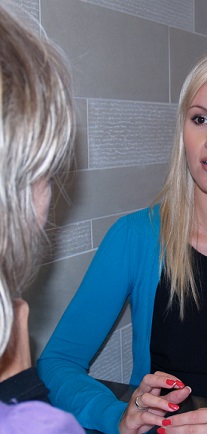Mentoring was always there but today more than ever, it is a recognised and important part of education. As a learning tool, when applied appropriately and properly, mentoring can significantly enhance anyone's learning.

Mentoring is a process in which a more skilled or more experienced person serves as a role model and teaches, sponsors, encourages, counsels and befriends a less skilled or less experienced person for the purpose of promoting the latter’s professional and /or personal development. Mentoring functions are carried out within the context of an ongoing, supportive relationship between the mentor and mentee.
Some Important Points on Mentoring
First and foremost, it is a partnership. If the mentee is solely learning from the mentor, then this is a one-way relationship which is akin to tutoring or teaching. It is not considered to be mentoring. Mentoring is a two-way relationship, and therefore it is a partnership. In a partnership, both parties bring something valuable to the relationship and both gain from it. The mentee wishes to learn and grow, whilst the mentor also has something to learn and wishes to share what they have already learned. The goal of mentoring is to learn. When establishing a mentoring relationship, it is important to define the learning goal and focus of the relationship.
- Mentors also let the mentee fail. Mentors are not there to stop the mentee making mistakes. Falling down and then trying to figure out where we went wrong is a valuable lesson. Good mentors know and accept that. Making errors can ultimately be to our advantage since in order to grow we need to learn from our own mistakes.
- Mentors ask rather than tell. If a mentee is not sure of something, the mentor should encourage them to come to their own solutions rather than 'tell' them what to do. Mentors may teach and tell the mentee, but they may do so by asking questions and encouraging the mentee to reason things out for themselves whilst the mentor listens. Both will benefit from this two-way communication and it will help the mentee to internalise the lesson.
- Mentors encourage. Everyone has fears and insecurities - good mentors know this and will watch out for any difficulties the mentee is experiencing and help them to deal with them. They may do this by listening to, and acknowledging, how they feel. A mentor should never patronise the mentee with phrases such as “don’t feel like that” etc, but should praise them where praise is due and thereby encourage them to learn.
- Mentors welcome conflict. Disagreement provides a ground for fertile discussion and growth. Conflict enables the mentor and mentee to consider all viewpoints and options. If the mentee is not able to share their own views and act as they choose, then it is not a true mentoring relationship and is not built on trust. The goal of mentoring is to stimulate thinking, not to get the mentee to agree with everything the mentor says.
- Mentoring should encourage the mentee to learn, grow, and achieve.
It is interesting to note that some research which was conducted to investigate a group of supervisees of an organisation, found that the most commonly reported problem with the supervision process was an ‘inability to access the supervisor’ as required. This factor must be considered when negotiating availability of a supervisor. For instance, a difficult session between a counsellor and a client will often require an immediate ‘de-briefing’ with a supervisor rather than waiting for the next meeting which was made for a pre-arranged time. Therefore, a degree of flexibility is preferred. Telephone contact in between times may also be appropriate.
Mentoring has several meanings. It can be unidirectional, reciprocal, and/or hierarchical. The traditional mentoring relationship will include sharing, giving, the incorporation of another person’s attitudes, and role modelling.
Reciprocal Mentoring
This involves a relationship between two individuals both of whom are contributing to, and deriving mutual benefits from, the relationship for their professional and personal growth.
One mentoring expert -Kram (1983) - identified four stages to a mentoring relationship:
- Initiation: where the mentee may develop a strong positive respect towards the mentor. The mentee also starts to feel respected and supported.
- Cultivation: where he mentee’s expectations are tested against reality. There may be a growing sense of competence as the mentor challenges and coaches the mentee.
- Separation: where the mentee begins to experience independence and autonomy. The mentoring relationship may no longer be a central part of their lives. There may be feelings of loss.
- Redefinition: where the mentor and mentee develop a new relationship on an equal footing.
The mentee moves through the stages. At the final stage, Kram suggests that the mentoring relationship has the potential to enhance the mentor and mentee’s development.
Limbert (1995), another mentoring expert, proposed two models of mentoring that focused on females. Limbert’s work was based on women in higher education:
- The first model involved a senior female faculty member mentoring a junior female member. The advantage of this model is that they have a shared experience of moving through the ranks in academia. A disadvantage is that there may be too few senior women to help the junior women. Also, a senior female may not necessarily have integrated well into the arena of male dominated academia and as such they may not be particularly adept at mentoring someone entering the system.
- The peer mentoring model is the second model that Limbert discussed. One of the disadvantages of this model is that it can take time to develop a trusting mentoring relationship. However, there are also several advantages to this approach: the people involved may become less dependent on each other, there are opportunities to exchange external networks, those involved may feel safe to fail and make mistakes, and they may be more able to take account of flexible time commitments.
Problems with Mentoring
There are some potential pitfalls of mentoring which include:
- A good mentor acts as a role model, however, if the mentee puts the mentor on a pedestal or if the mentor puts themselves on a pedestal it can cause problems. Mentors are human, they make mistakes, so when the mentee realises this it can result in a lack of respect or breakdown in the relationship. Mentors need to be upfront and to disclose that they have made mistakes and learned from them, and that they will help the mentee to learn from their own mistakes. Nevertheless, they need to strike a balance - mentors should be careful not to reveal too much personal information and disclose too many failures.
- The relationship must be built on trust. If a mentor violates a mentee’s trust this can, and usually does, also result in a breakdown of the relationship.
- The mentee’s direct supervisor or manager should not be their mentor. The mentee may feel unable to reveal any mistakes or failures or it can be difficult if any conflicts arise in the supervisor-supervisee relationship. However, if the supervisor is clear when s/he is acting as a mentor and when as a supervisor, it can be a positive relationship.
Proctor’s Interactive Model of Supervision (1986)
Proctor devised an integrated model that included three interactive functions that provide a useful framework for supervision within genetic counselling:
- Formative: an educational function that provides a framework for reflective learning. In this function, the supervisee aims to develop their skills, abilities, and understanding so as to enable them to recognise their strengths and weaknesses in their work, and also to gain knowledge and relate theory to practice in a critical way.
- Restorative: a supportive function which is concerned with how the supervisee responds emotionally to the stresses of their work. It allows the supervisee to explore their feelings and consider how the work impacts on them emotionally. It is a way to de-stress, recharge and devise coping strategies.
- Normative: a managerial function where the importance of professional and organisational standards and the need for competence and accountability are considered. It is concerned with safe practice and the development and maintenance of standards of practice. It considers whether the work of the supervisee is appropriate and acting in accordance with professional ethics and guidelines for practice.